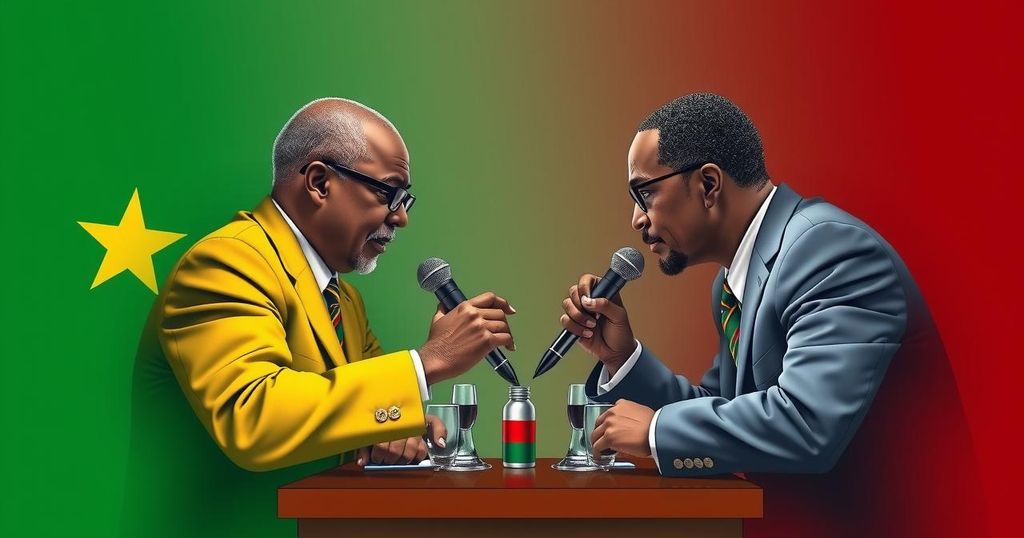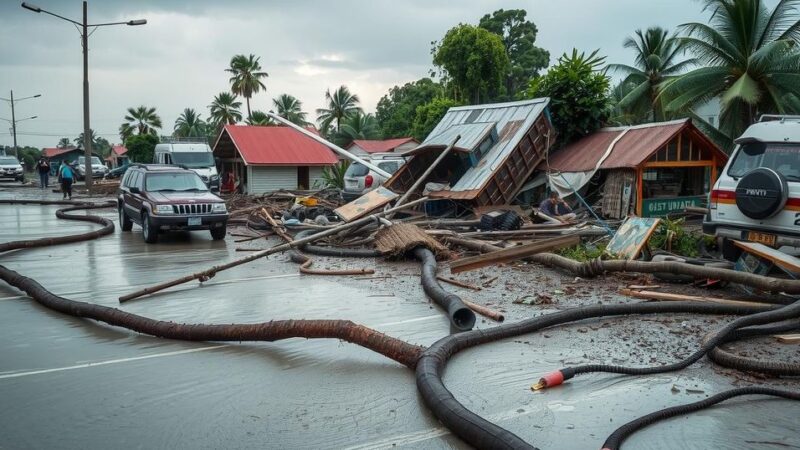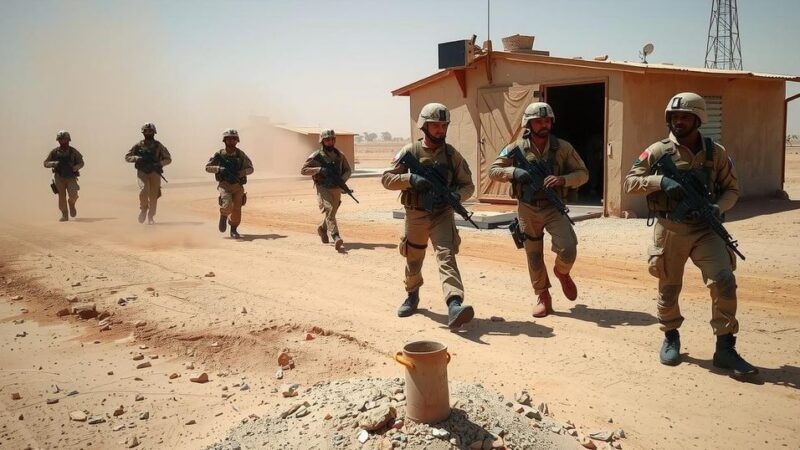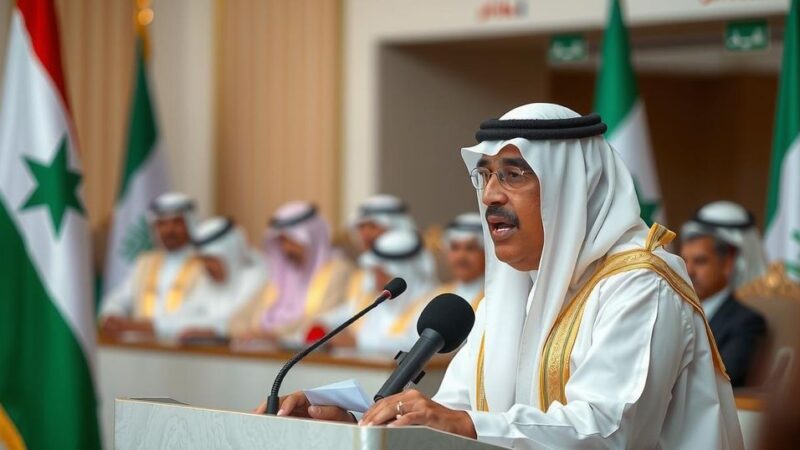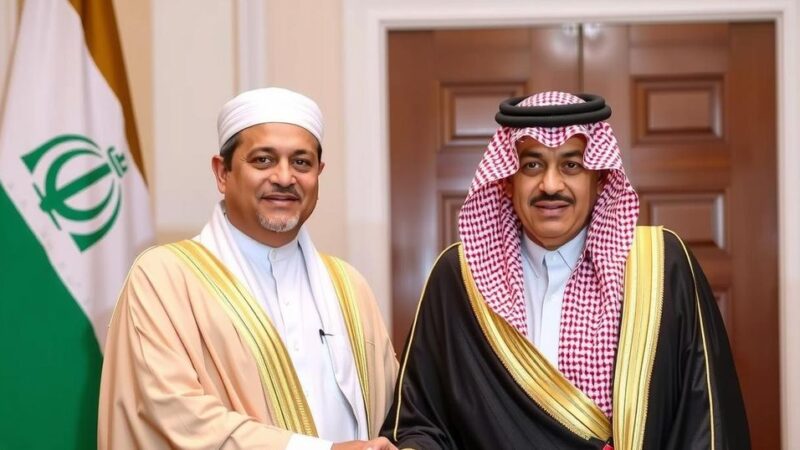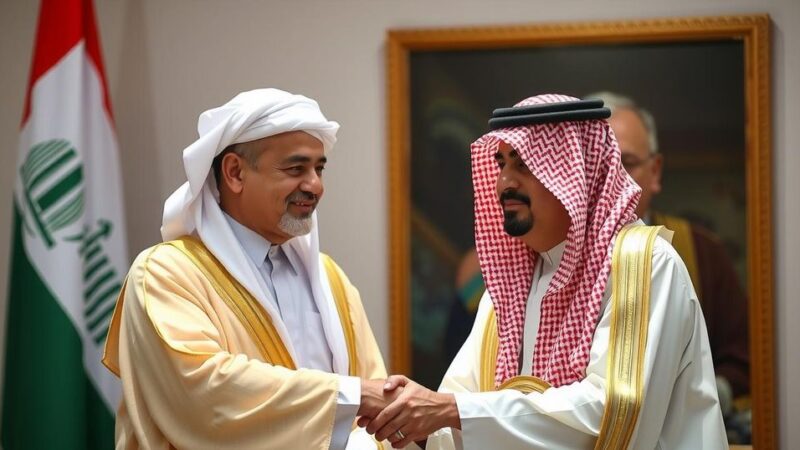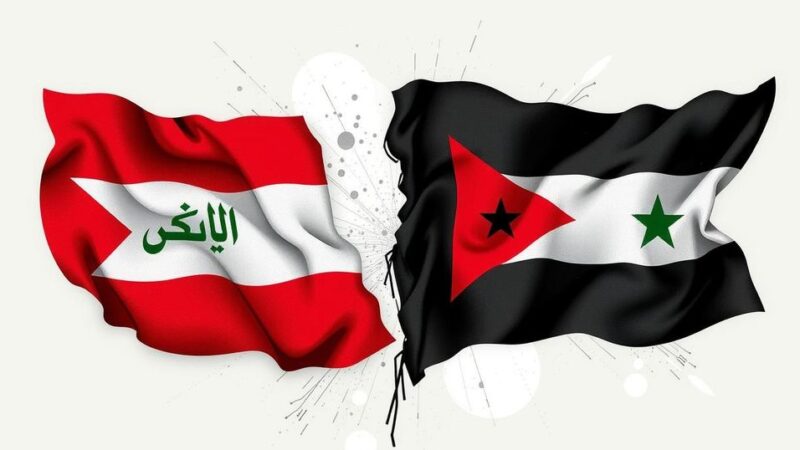Eritrean President Isaias Afwerki stated that recent claims of an alliance against Ethiopia are unfounded propaganda. At a Tripartite summit, he emphasized Eritrea’s commitment to regional stability amidst rising tensions related to Ethiopia’s agreements with Somaliland and its relations with Egypt. Afwerki criticized Ethiopia’s internal struggles while reaffirming Eritrea’s support for peace in Sudan.
In a recent statement, Eritrean President Isaias Afwerki clarified that the recent Tripartite summit held in Asmara was not aimed at forming an alliance against Ethiopia. Afwerki dismissed allegations of an axis between Eritrea, Somalia, and Egypt as mere propaganda intended to incite anxiety within the region. He emphasized that Eritrea seeks stability in the Horn of Africa, expressing his nation’s commitment to collaboration amid ongoing regional tensions involving Ethiopia and its neighbors.
The tensions in the region stem largely from Ethiopia’s relations with both Somalia and Egypt, particularly regarding Ethiopia’s agreement with Somaliland, which has exacerbated hostilities with Somalia. Egypt has intensified its support for Somalia, indicating a strategic move against Ethiopia, especially as it has offered to lead the African Union Support and Stabilization Mission in Somalia (AUSSOM). Afwerki condemned foreign disinformation campaigns and warned that these narratives could provoke heightened conflict in an already volatile environment.
Despite his criticism of Ethiopia’s handling of its internal affairs, particularly regarding its 1994 constitution which he described as “fundamentally flawed,” Afwerki made it clear that Eritrea’s intention is not to see Ethiopia destabilized. He highlighted the consequences of ongoing ethnic tensions within Ethiopia, specifically in the Amhara and Tigray regions, pointing to the external interferences that exacerbated longstanding border clashes between Eritrea and Ethiopia. Furthermore, he extended Eritrea’s commitment towards promoting peace in Sudan, reinforcing their historical ties with the country.
Simultaneously, while Ethiopia has affirmed its role in peacekeeping missions within Somalia, it faces opposition from Mogadishu, which seeks to nullify the agreement with Somaliland. The intricate web of regional relations underscores the complexities that still influence the Horn of Africa’s political landscape.
The Horn of Africa remains a region fraught with conflict and instability, exacerbated by colonial legacies and the complexities of ethnic divisions. The relationship between Ethiopia, Eritrea, and Somalia is particularly strained given historical hostilities and ongoing territorial disputes influenced by external actors. Recently, Ethiopia’s military agreements and actions concerning Somaliland have raised tensions with Somalia, while Egypt seeks to counterbalance Ethiopia’s influence through support for Somalia. President Isaias Afwerki’s recent remarks seek to quell fears of a united front against Ethiopia while asserting Eritrea’s commitment to regional stability.
In conclusion, President Isaias Afwerki has firmly rejected the notion of a military axis against Ethiopia involving Eritrea, Somalia, and Egypt, characterizing such allegations as disinformation. He underscored Eritrea’s commitment to peace and stability in the region, even as he acknowledged Ethiopia’s significant internal challenges and ongoing ethnic conflicts. The complexities of regional dynamics continue to play a critical role in the interactions between these nations, highlighting the necessity for careful diplomatic engagement.
Original Source: www.garoweonline.com

